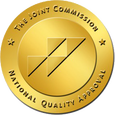Insurance Providers we honor:
|
|
|
We honor many more insurance providers than listed on our website - We are often able to negotiate benefits with most insurance providers.
Mark of Excellence Behavioral Health Care !!
© 2022 Hillside Laguna Beach, LLC. Substance Abuse Treatment & Recovery Centers |


 RSS Feed
RSS Feed
